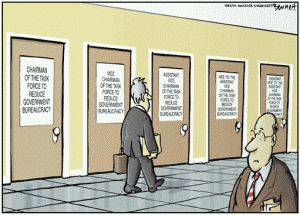 Starting on July 30th, lenders and brokers will have to begin providing borrowers with a whole slew of new disclosures – some good, most bad. One of the worst of the new requirements, as reported by Ken Harney in the LA Times is the requirement to “redisclose” with regard to the APR:
Starting on July 30th, lenders and brokers will have to begin providing borrowers with a whole slew of new disclosures – some good, most bad. One of the worst of the new requirements, as reported by Ken Harney in the LA Times is the requirement to “redisclose” with regard to the APR:
point (0.125), the lender will now be required to “redisclose” — that is, provide you with a corrected version and allow you an additional seven business days to consider the transaction before settlement.
What might cause the APR to increase after the initial disclosure? Lots of things: Say you left your initial rate on the loan to float with the market, but rates increase.
You’ll need to get an amended truth-in-lending disclosure. Or perhaps the lender got inaccurate estimates of costs from third-party participants in the transaction, such as the settlement or escrow company. Or say that unexpected eleventh-hour junk fees materialize.
This is a perfect example of how some of the worst policies are put in place by government agencies. It seems evident that whomever concocted this redisclose policy has never brokered a loan for a client. The worst part is that it is also evident that they are thinking that this will benefit the consumer by forcing the broker or lender disclose more information – potentially unlimited useless information.
Why is this bad? Rates fluctuate by the day, hour, minute and second. If a borrower wants to “float” the rate instead of “lock” the rate, the lender will then have to send out another set of disclosures, continually, until the market trades relatively flat enough to where it is within one-eighth of a percentage point of the estimated rate. This essentially asks the lenders and brokers to continually send out disclosures predicting something that they can’t. The net effect is that it will end up costing the consumer more because they won’t be able to get the loan completed fast enough to coordinate with the closing of escrow on a new home purchase. Then the lawsuits will come (lawyers around the country are likely staffing up for the slaughter as you read this). Net, net; consumers lose, lenders and brokers lose, construction workers lose, Home Depot employees lose, pool cleaners lose, window cleaners lose, gardeners lose, lawyers win.
Instead of forcing brokers and lenders to send out these ridiculous disclosures that will not serve the consumer in any meaningful way, the HUD and the Fed should be putting more resources into requiring more powerful self-regulatory action from the lending industry. Take a page from the securities industry for example; the SEC oversees the self-regulatory organization, FINRA in the securities industry. Imagine what would happen to volume on the NYSE if a stockbroker had to send out new disclosures predicting the stock price within one-eighth of a percentage point each time somebody wanted to buy a stock. There wouldn’t be any!
The answer lies in the creation of a new regulatory organization like the SEC (or possibly a subdivision of the SEC) that would specifically regulate the mortgage industry’s self-regulatory organizations. This new agency would enact tough new standards on product suitability, licensing, and ethics. Once this is done, it will free up the high-quality lenders, brokers and their agents to provide loan services to consumers in a manner that efficiently serves their needs, more specifically – allowing them to get the home they want with a fast loan approval (or denial) at the rate they need. Throwing meaningless disclosures and paperwork at consumers is not the answer, it only complicates the problem.

